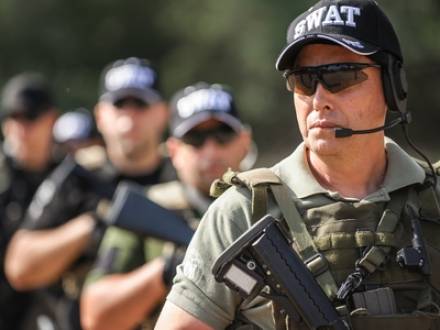Is Swatting a Criminal Offense in Wisconsin?
 A Wisconsin man recently pled guilty to federal charges of swatting after spending a week with friends on a swatting spree that involved gaining access to Ring home security door cameras. Once he gained access, he placed bogus emergency phone calls that would bring an armed police response, livestreaming the events on social media. The young man pled guilty to one count of conspiracy and two counts of unauthorized access to protected computer information. The investigation was handled by the FBI because the crime crossed state lines, making it federal.
A Wisconsin man recently pled guilty to federal charges of swatting after spending a week with friends on a swatting spree that involved gaining access to Ring home security door cameras. Once he gained access, he placed bogus emergency phone calls that would bring an armed police response, livestreaming the events on social media. The young man pled guilty to one count of conspiracy and two counts of unauthorized access to protected computer information. The investigation was handled by the FBI because the crime crossed state lines, making it federal.
You may have heard the term "swatting" recently in the news. Swatting is a form of criminal harassment that involves deceiving an emergency service (police, firefighters, EMS) into sending a response team to another person’s address when that person does not need assistance. Swatting diverts crucial police, ambulance, and firefighter resources from those who really need them. Swatting can be charged as a federal or state crime; if you have been charged with this offense, it is important that you speak to a skilled Racine County, WI criminal defense lawyer.
Swatting as a Wisconsin State Crime
Swatting was not a crime in Wisconsin until March 2020, when it was codified into law under Section 947.014. Although swatting is now a crime on its own, it can also lead to additional charges, such as unlawful use of a phone or unlawful use of a computerized communication system. While it may sound like an amusing prank, swatting is a felony offense.
For those who intentionally convey false information that an emergency exists, a Class I felony can be charged if the call results in a response from the emergency services. If the swatting incident results in bodily harm to any person, the offense will be charged as a Class H felony. If great bodily harm results from a swatting incident, the offense will be charged as a Class E felony.
Wisconsin law does not describe who might suffer harm in a swatting incident, but it is presumed to be the swatting victim, family members or roommates of the swatting victim, law enforcement, or anyone else involved in the incident.
What Are the Elements Necessary for a Swatting Conviction?
There are four elements that must be present for a defendant to be convicted of swatting in the state of Wisconsin. These include:
- The defendant deliberately conveyed information that there was an emergency.
- The information conveyed by the defendant was false.
- The defendant was aware that the information was false.
- The information conveyed by the defendant resulted in a response by a specialized tactical team.
What Are the Penalties for Swatting?
If the swatting offense is charged as a Class I felony, the defendant can face up to three and a half years in prison, a $10,000 fine, or both. If the swatting offense is charged as a Class H felony, the defendant faces up to six years in prison, a fine as large as $10,000, or both. If the swatting incident is charged as a Class E felony, the defendant faces up to 15 years in prison, a fine as large as $50,000, or both. If the swatting incident is charged as a federal crime because it crosses state lines, the defendant could face up to 20 years in a federal penitentiary.
Contact a Milwaukee County, WI Criminal Defense Lawyer
If you are facing swatting charges, these are serious charges that could result in years behind bars. It is important to speak to a Walworth County, WI criminal defense attorney from Bucher Law Group, LLC who can build a comprehensive defense on your behalf. Attorney Bucher brings a unique perspective to his criminal defense practice because he spent 20 years as the Waukesha County District Attorney and has served on dozens of state-wide task forces on violent crimes. He has also litigated some of the most high-profile, complex criminal cases in the state. Call 262-303-4916 to schedule your free consultation.














 262-303-4916
262-303-4916 262-303-4079
262-303-4079






